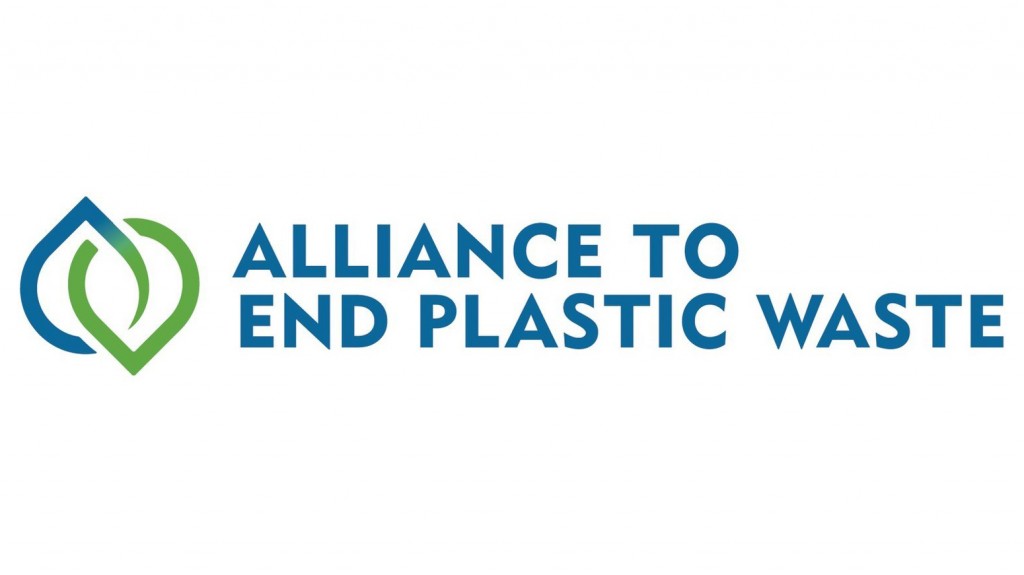Alliance to End Plastic Waste progressing towards five year goal to divert millions of tons of plastic waste in 100 cities
Projects to decrease plastic pollution, improve livelihoods for millions and contribute to circular economies underway

The Alliance to End Plastic Waste has released its 2020 progress report, outlining the organization's commitment to fight plastic waste and build a circular economy. The organization says it is working on or towards projects around the world, based on its four strategic pillars of waste management and recycling infrastructure: innovation, education and engagement, and clean up.
So far the Alliance has activated 14 projects across 14 cities in six countries in South East Asia, India and Africa - all at the frontline of the plastic waste challenge. The new report also details 55 member-led projects worth US$400 million towards building solutions to end plastic waste in the environment.
"We have to act with urgency as lack of action will result in millions of tons of plastic waste continuing to leak into the ocean if we do nothing today. The progress the Alliance is making in just 18 months is the start of a long road ahead. But we can shorten the road significantly when we act together across industry, governments, civil society and development agencies. The problem is solvable and our strategy is to apply a holistic approach backed by deep technical knowledge and resources from the full plastic value chain," said Jacob Duer, President and CEO, Alliance to End Plastic Waste.
Duer added, "Our ambition, over five years, is to divert millions of tons of plastic waste in more than 100 at-risk cities across the globe, improve livelihoods for millions and contribute to a circular economy. The Alliance is demonstrating how successful plastic waste management solutions can unlock capital to scale and accelerate the pace."
Examples of Alliance and member project milestones outlined in the 2020 Progress Report across the four strategy pillars:
- Project STOP (Stop Ocean Plastics) in Jembrana, Northwest Bali Indonesia, has created the regency's first-ever solid waste management service with a full recycling system that will create new and permanent jobs. The Alliance and Project STOP will create a system that will aim to collect 20,000 tons of waste per year. This involves a radical transformation at every societal level - citizen, government and community.
- Zero Waste Plastic Cities - a combined vision of the Alliance and Grameen Creative Labs co-founded by Nobel Peace-Laureate Professor Mohammed Yunus, that goes beyond plastic waste leaking into the environment but also develop sustainable social businesses that improve the livelihoods of many in the cities of Puducherry, India and Tan An, Vietnam
- Over the last year, the End Plastic Waste Innovation Platform with Plug and Play has fostered start-ups that can impact the plastic value chain. The programme has seen more than 1,000 start-ups from Silicon Valley and Paris apply, while the third hub, Singapore, has seen widespread interest when it kicked off its accelerator programme this summer.
- Suez, as a world leader in smart and sustainable resource management and also a founding member of the Alliance, is bringing its technology know-how to address plastic waste leakage in Thailand and a plastic recycling plant is now being built, the company's first outside of Europe. This plant will convert 30,000 tons of locally collected polyethylene film waste into recycled materials.
Examples of cross-value chain collaboration include:
- Milliken, Llyondellbasell and Berry Global are working together on a study of a secondary sorting system: an innovation to introduce a secondary pass at materials recovery so we can increase the recovery of valuable materials like paper and various categories of plastics
- PepsiCo, The Procter & Gamble Company, CP Chemical and Dow Investing in the Ocean Fund by Circulate Capital to meet a financing gap for plastic waste collection in Asia across countries like China, Indonesia, the Philippines, Thailand and Vietnam.
David Taylor, Chairperson, Alliance to End Plastic Waste and Chairman, President & CEO, The Procter & Gamble Company, highlights in the report: "Plastic waste is a serious challenge that requires swift action and strong leadership, and I am convinced that the only way to get there is through collective action, innovation and partnership. The Alliance is in a unique position. We can unlock circularity and economic value in post-consumer plastic by supporting a range of innovative measures along the value chain, involving individuals and the public and private sectors."
The 2020 Progress Report also announced the Alliance's 2025 Ambition. With a strategic focus on infrastructure development, innovation, clean up and education and engagement, the Alliance and its members will build investable models and partnerships within five years that will:
- Demonstrate zero plastic waste in multiple cities and divert well over millions tons of plastic waste through Alliance projects in more than 100 at-risk cities.
- Support healthy livelihoods for over 100 million people by enabling local ownerships of waste management.
- Unlock at least five times its investment and much more to accelerate actions and solutions to end plastic waste and build sustainable cities.



